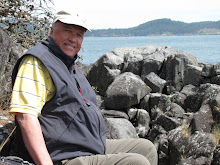Hundreds of experimental and alternative therapies for prostate cancer are being studied around the world. A few of these potential treatments are summarized here:
Trans Perineal Microwave Ablation of the Prostate (TAP)
TAP uses microwave energy to heat the prostate and kill cancer cells. It has been used in patients whose cancer has not spread outside the prostate and who did not benefit from radiation therapy. It is an outpatient procedure with few side ffects. Early results suggest this treatment may offer a cure. TAP was developed at the University of Toronto.
Gene Therapy
Genes that have been specifically created to treat disease are inserted into cells. The Toronto General Hospital is testing one type of gene therapy to improve a man’s odds after prostatectomy. Sometimes prostate cancer returns even after the prostate has been removed because small numbers of cancer cells have already spread to other parts of the body before surgery. Researchers are testing a gene therapy which is used a month before surgery and encourages the body to kill cancer cells that have spread beyond the prostate. This research is still in early stages but the results so far are hopeful.
Cryosurgery
Cryosurgery (or cryotherapy) is the use of extreme cold to destroy cancer cells. Traditionally cryosurgery has been used to treat external tumours (ex. tumours on skin) but advances in technology are allowing researchers to test it on internal tumours.
Thin metal probes are inserted through the skin of the perineum into the prostate. Liquid nitrogen, given through the probes, forms an ice ball that freezes the prostate cancer cells. When they thaw, they burst. Early research results are hopeful, but there is not enough proof yet to draw conclusions about its long term effectiveness.
Clinical Trials
For more information on clinical trials in prostate cancer, please visit www.clinicaltrials.org, which provides a comprehensive listing of clinical trials underway in Canada and the U.S.

